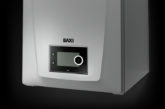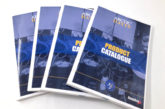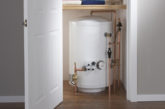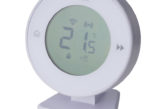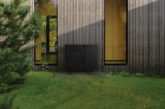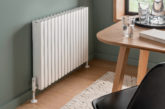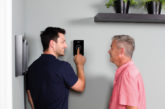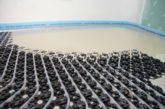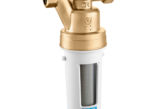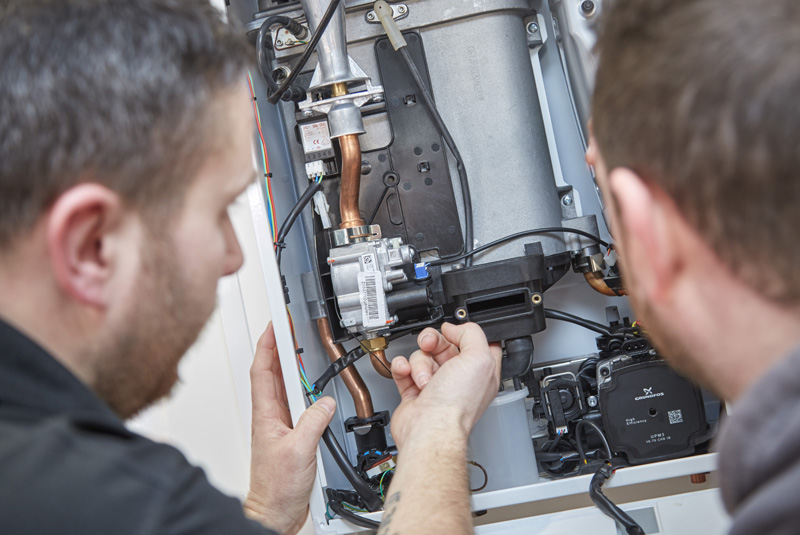
With the winter months almost upon us, Lizzie Wilkinson, Head of Domestic Product Management at Ideal Boilers, outlines three key areas of best practice that installers must keep at the front of their minds.
It’s stating the obvious as far as most heating engineers are concerned but, as the nights draw in and temperatures start to fall, installers know all too well that their services and expertise will increasingly be called upon. That’s why we believe that now is the right time to recap three straightforward, yet imperative, areas of installation best practice.
System filters
We all know that central heating filters are used to reduce the number of contaminants that get trapped in the system.
An update to British Standard BS 7593:2019 was published on the 29 May 2019. This is a code of practice for the preparation, commissioning and maintenance of domestic central heating and cooling water systems and replaces the previous 2006 edition.
In section 8 of this updated standard, reference is made to the use of in-line system filters. It states that in operation, a cleaned and commissioned system might have residual insoluble suspended particulate debris circulating in the system water. These circulating particulates have detrimental effects on boilers, pumps and valves.
The standard then recommends that in order to keep system circuit water free from particulate debris, an in-line filter should be permanently installed within the system water circuit. This will maintain system cleanliness, thereby protecting its components and conserving efficiency and effectiveness.
Since we launched our Ideal System Filter in 2017, it’s been exceptionally well-received. It is high quality, easy to install, can be fitted on to horizontal and vertical pipework, and works at a 45⁰ angle.
Ultimately, however, it’s the filter’s reliability that has gone down so well, especially since we launched our Logic Max and Vogue Max boilers in 2018, which come with 10 or 12 year warranties and an Ideal System Filter supplied in the box.
From an installer’s perspective, it’s always worth stressing to customers that – if properly serviced and maintained – installing a filter will keep their heating system working efficiently, reduce the damage caused by contaminants and mean their boiler costs less to run.
Condensate pipes
The past few winters have seen prolonged spells of sub-zero temperatures in Britain, dropping as low as minus 14⁰ during the record-breaking ‘Beast from the East’ of 2018.
Unsurprisingly, this resulted in a significant increase in the number of calls to boiler manufacturers and heating engineers from householders with frozen condensate discharge pipes, which caused their condensing boilers to shut down.
In the vast majority of cases, problems occur when the condensate discharge pipe is located on the outer part of a building for some or all of its length.
Industry specification and British Standard 6798 both provide advice on how condensate discharge pipes should be run either internally or externally. However, both state that “wherever possible, the condensate drainage pipe should be terminated at an internal foul water discharge point.”
Where there is no other option than to run the pipe externally, the pipe needs to be increased to at least a 30mm inside diameter and insulated to help prevent freezing. Detailed guidance should be given in the boiler’s installation instructions.
In addition, the HHIC has also published both an installer guide to condensate discharge pipe installation and a customer information booklet, which can be used by the installer to explain the risks and the remedial action required.
It’s essential that installers also fit the condensate drain correctly. This will ensure that the boiler’s warranty is valid. The benchmark commissioning checklist supplied with the boiler and detailed in the manufacturer’s instructions should be followed during every installation.
Boiler Plus
In April 2018, the Government introduced the Boiler Plus scheme – designed to help improve energy efficiency in people’s homes. Every gas boiler now must have an energy-efficiency rating of at least 92%. At Ideal Boilers, all our products either meet or surpass this requirement.
In addition, all gas and oil boilers must be fitted with time and temperature control, and every replacement combi boiler installation must include at least one of the following additional energy efficiency measures:
*A flue gas heat recovery system
*A weather compensation device
*A load compensation device
*A smart thermostat with automation and optimisation functions
Ideal Boilers supplies a range of controls and accessories to aid compliance with Boiler Plus, including Touch Combi RF with load compensation and smart thermostat Touch Connect.
Installers have an important role to play in improving the way people use energy in their homes. In an industry where customer satisfaction and recommendations are fundamental, adhering to best practice is the key to success.


